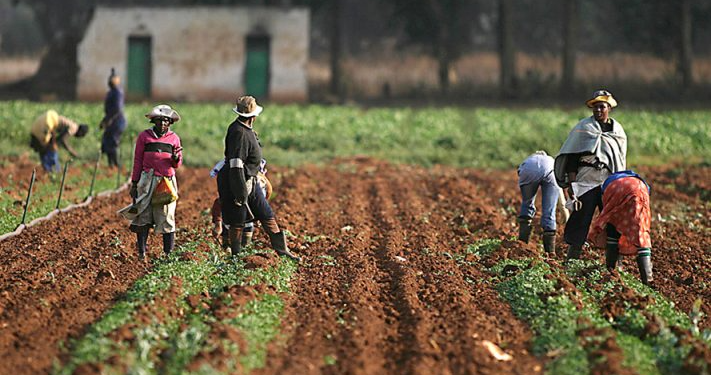The International Fertiliser Development Centre (IFDC), through its Soil Values programme, a DGIS-funded Programme, has begun training 50 extension workers to improve soil fertility and restore degraded lands in Bauchi State. This development follows a similar exercise held in Kano and Jigawa states.
The programme organised a two-day training for extension agents and led farmers in soil restoration, conservation techniques, and integrated soil fertility management.
The Soil Values program operates in a context marked by climatic and socio-economic challenges facing Sahelian countries, such as recurrent droughts, socio-political conflicts, desertification and the effects of climate change.
The program’s initiative is built around three intervention pathways (Agroecology, Inclusive Markets and Enabling Environment) as well as five intervention areas (Bundling, Integration, Brokering, Convening and Scoping & Learning)
The country coordinator of the Soil Values Programme Nigeria, Medinah Ayuba-Fagbemi, said this on the sidelines of a two-day training exercise on Thursday in Bauchi: “The Soil Values program aims to improve soil fertility and productivity of two million hectares of agricultural land in the Sahel while strengthening the resilience to climate shocks and well-being of 1.5 million farmers, with a particular focus on women and youth. We hope to restore 800,000 hectares in North Nigeria, benefiting 600,000 smallholder farmers.”
This training is part of a €100 million initiative over ten years funded by the Kingdom of the Netherlands through its Directorate-General for International Cooperation (DGIS). She stated that 50 extension workers would be trained, including 30 in the first phase and 20 in the second phase.
Medinah said participants would be exposed to integrated soil fertility management, soil and water conservation, and soil health management techniques to improve soil fertility, increase crop productivity, and enhance food security.
The coordinator said the participants were expected to cascade down the training and technologies to about 20,000 smallholder farmers in Jama’are, Shira, Itas Gadau, Toro, Zaki and Ningi Local Government Areas, spanning across 21 communities within the state
According to Medinah, the Soil Values consortium is also collaborating with the Bauchi state Agricultural Development Program (BSADP) and the World Bank-funded projects in the state through ACReSAL and L-PRES in building the capacity of extension workers on Integrated Soil Fertility Management (ISFM), Soil and Water Conservation (SWC) and Soil Health Management (SHM) technologies. The training exercise reflects its commitment to restoring soil health, improving productivity, and building resilient farming systems of producers and agropastoralists.
She said the training exercise would strengthen extension agents’ technical capacity and inspire new approaches to working hand-in-hand with farmers to achieve more sustainable and inclusive agricultural transformation.
Also, MELS coordinator of the Soil Values Programme, Joshua Arogunyo, said the programme initiated viable programmes to improve soil fertility management and restore degraded lands in Bauchi, Kano, and Jigawa, adding that the programme’s scope would cover 10 states in northern Nigeria.
“The programme’s thrust is to reduce the yield gap, improve soil fertility, and make farmers more deliberate about giving back to the soil to ensure long-term productivity and food security,” he said. “We are implementing it across the Sahelian zone of Nigeria because that is where land degradation is most severe,” he said.
“We hope that at the end of this programme, Nigeria would have made significant progress in restoring degraded lands, increasing farmer incomes, and raising consciousness about the importance of investing in soil health sustainably,” he said.
Some participants, Aliyu Safiyanu and Helen Ciroma, lauded the gesture, adding that it would encourage good agricultural practices (GAP) in the state.
Safiyanu said that he learnt new skills that would enable him to teach rural farmers how to use farm by-products, such as Bokashi, to nourish their farmlands.
On her part, Ciroma said the new techniques, such as composting and Bokashi, would enable women farmers to improve their soil fertility and increase productivity.



